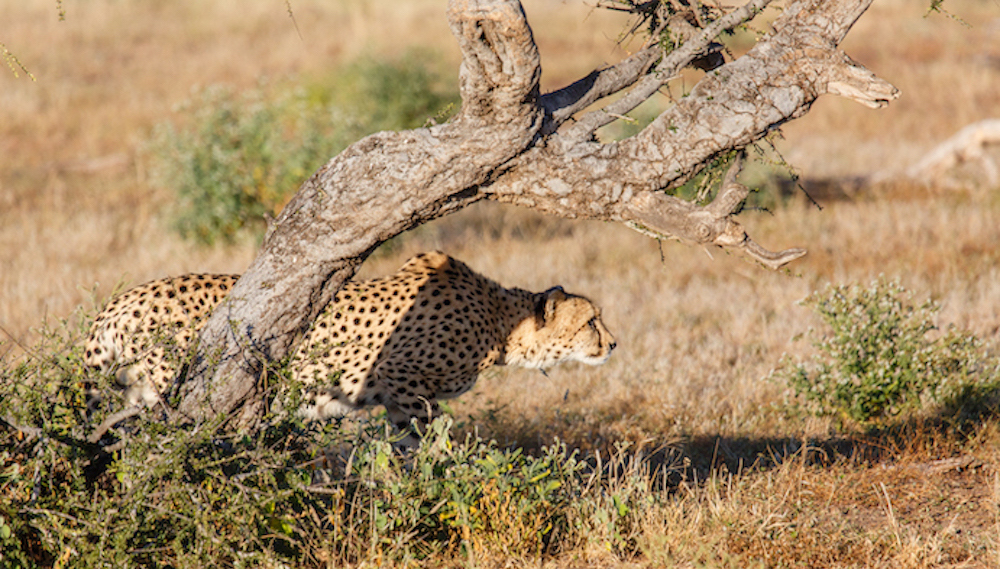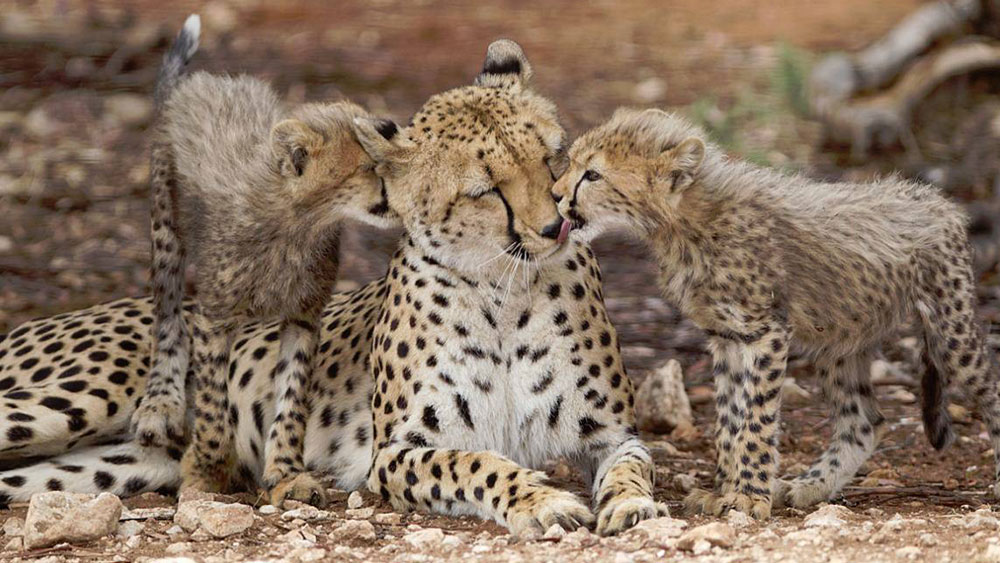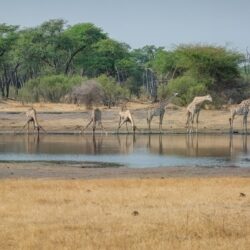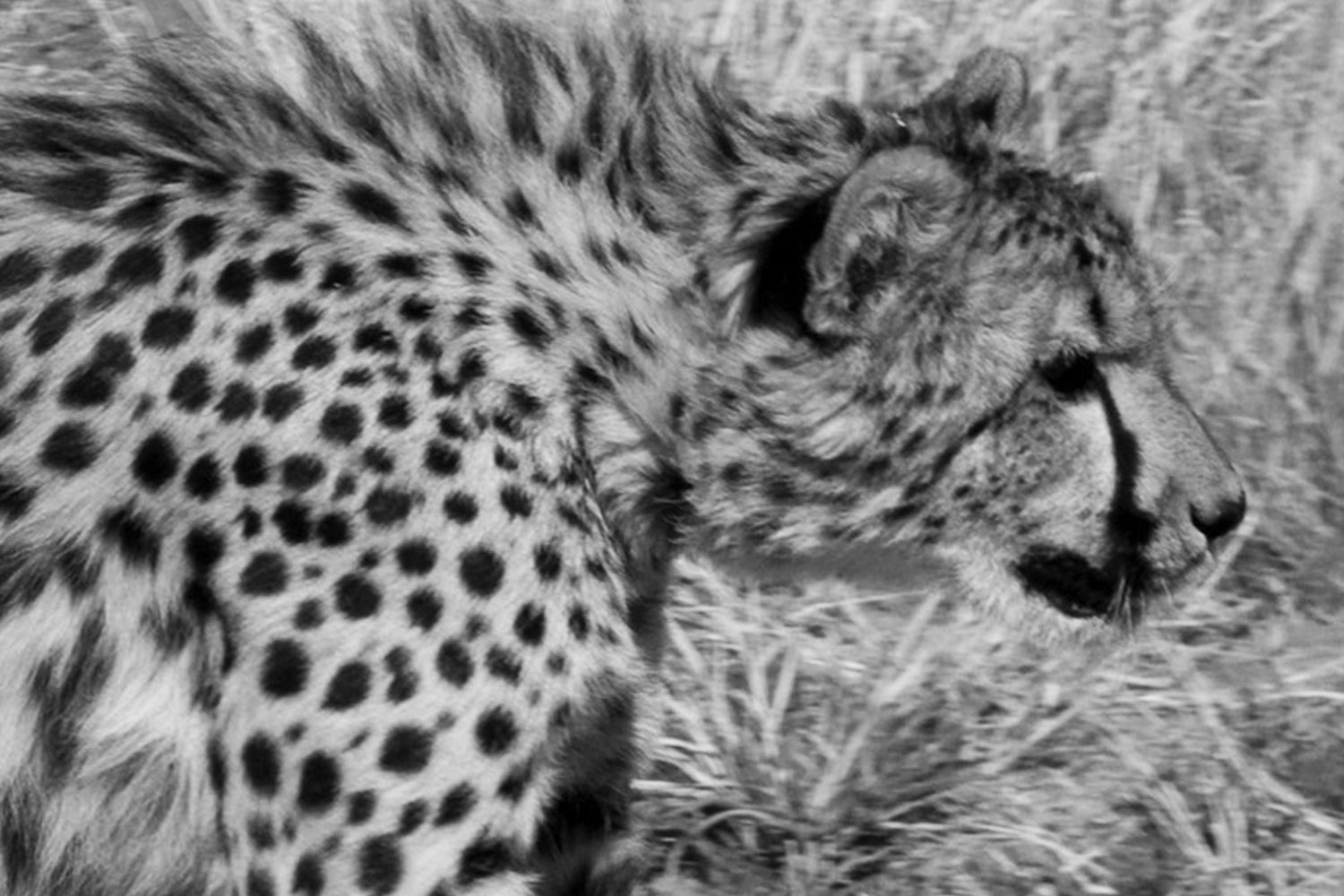The Cheetah’s Survival in a Competitive Environment
-

- by Cheetah Conservation Fund Canada July 14, 2021

Brand
The cheetah has often been used by organizations as a shorthand to describe speed, focus and performance. Companies across various sectors include “cheetah” in their corporate name or a product line to convey these characteristics to clients.
This article is intended to illustrate how the cheetah’s capabilities are well aligned with the strengths that companies prize in their own operating environments.
Differentiation
The cheetah is one of the oldest big cats on the planet. In addition to being the fastest land animal, they have evolved to survive in environments, where obtaining their sustenance is very competitive. There are National Parks across Africa that conserve wildlife but the cheetah faces many competitors for their food, including lions, leopards and hyenas which are higher in number in these protected areas thus more of a threat to the cheetah. As a result, cheetahs mostly live outside protected areas to reduce conflict with these larger and more aggressive predators. These other predators secure their meals through strength and ferocity, while the cheetah relies on speed and superb reaction time.
Adaptation
The cheetah has adapted to a very competitive environment to survive. The cheetah does not waste energy or take risks that might cause it injury or threaten its young. When coming upon a potential food source, the cheetah first scans the area (they see up to five miles into the distance) to identify any threats and the most suited candidate to pursue.
Planning to Execution
As cheetah cubs develop their hunting skills, their success rate in their pursuit of prey steadily grows as they reach adulthood, and can be over fifty per cent. The cheetah’s ability to assess the opportunities and potential dangers in its environment and to quickly adjust its strategy are instructive for organizations that need to continuously improve their strategies and to assess whether they are achieving their optimal results.

One of the notable characteristics of female cheetahs that become mothers is their superb ability to guide their young cubs, as they are introduced to the world, training them to hunt, to be wary of predators and to live their own lives fully independently. This instinct to mentor is vital to ensuring that the young cheetahs become independent and successful.
As the actions of humans have reduced the prey base available for cheetahs and encroached on wildlife habitat, human-wildlife conflict has become much more likely. The cheetah can pursue farmers’ livestock, targeting the weak or the young, which is exacerbated by poor livestock management on the part of farmers. Cheetahs are not out to kill livestock, they are opportunistic, and if livestock is not properly managed, then they can become easy prey for the cheetah.
One of the very successful programs at Cheetah Conservation Fund (CCF) Namibia is their Livestock Guarding Dog program. CCF staff help farmers improve their land, wildlife and farm management practices and provide selected individual farmers with a livestock guarding dog. With nearly 700 dogs placed with farmers over the past 25 years, farmers who have a CCF Livestock Guarding Dog have seen the predation on their farms reduced by over 80 per cent. These big dogs bark loudly providing the protection of their flocks. Cheetahs and other predators avoid this potential confrontation and stay away from the protected livestock, providing a win-win for the farmers, their livestock and the predators which then don’t get killed.
Securing its Future
As the world’s fastest land animal, the cheetah draws attention for its astonishing speed and performance. These are traits that both individual people and organizations admire and seek to emulate in their own efforts. This article has touched on the behaviours and motivations of the cheetah that allow it to be successful.
Understanding how the cheetah employs its capacities is also worthy of our admiration and understanding. How amazing it is to have the cheetah – a true icon – alive in the natural world, especially as there are so many aspects of the cheetah for us to admire and valorize in the way we communicate our own strengths and focus. We have the ability to ensure that the cheetah is protected in the wild and continues to exist on the planet that we share.
Thus, we encourage support from these very companies that have singled out the cheetah in their identity and messaging to help us save the cheetah in the wild for many generations to come. Companies who export or operate in Africa also have a role to play to save the cheetah. Please join us and be part of our Conservation Circle. You can reach us at Canada@cheetah.org.

Related Reading
-
November 16, 2024
Cheetah Keepers – All About the Cheetahs! -
October 4, 2024
World Animal Day 2024 -
May 22, 2024
It’s International Day for Biological Diversity!



